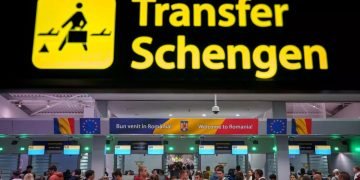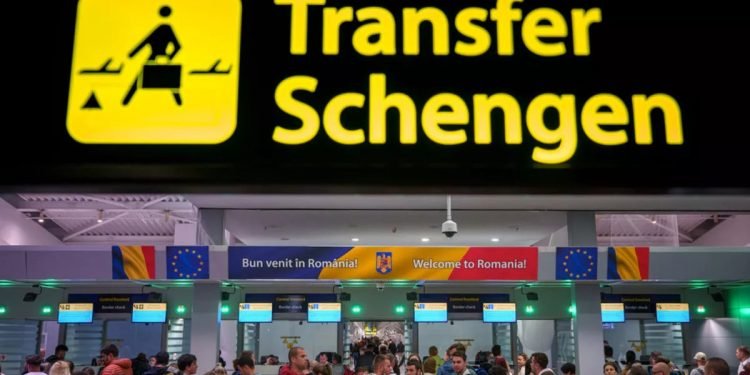Sunday marked a significant step for Bulgaria and Romania as they gained partial membership in the European Union’s Schengen Area. This allows for unrestricted travel by air and sea without border checks, a privilege previously enjoyed by other EU members. However, concerns raised by Austria regarding potential immigration issues have delayed full integration, with land borders remaining subject to review.
Despite the limitations, this partial membership holds symbolic importance for both nations. Experts like foreign policy analyst Stefan Popescu view it as a long-awaited sign of belonging and equality within the EU. Romanians living abroad, like Ivan Petrov, are excited about the prospect of faster and less stressful travel.
EU leaders, including Ursula von der Leyen, have praised the move as a historic moment for Schengen, fostering a more united Europe. With Bulgaria and Romania joining, the zone now encompasses 29 members, including 25 EU nations along with Switzerland, Norway, Iceland, and Liechtenstein.
While air and sea travel are now streamlined, Romania has deployed additional personnel at airports to ensure security and prevent misuse of the relaxed travel system. Random checks will also be conducted to detect false documents and human trafficking.
Both Bulgaria and Romania are hopeful for full Schengen integration by the end of the year. However, Austria’s concerns regarding land borders have currently limited access to air and sea routes. Notably, Croatia, a newer EU member compared to Bulgaria and Romania, achieved full Schengen membership in January 2023.
Truck Drivers Remain Frustrated by Delays
While some celebrate the progress, others, like truck drivers who experience extensive delays at land borders, are left feeling excluded. The Romanian road transport union UNTRR urges for quicker measures toward full Schengen access, emphasizing the financial losses incurred due to extensive waiting times. Union officials report truckers enduring hold-ups ranging from 8 to 30 hours at borders with Hungary and Bulgaria, with some instances exceeding three days.
Bulgarian businesses have also expressed frustration with the slow progress towards full integration. It remains to be seen when land borders will be included in the Schengen zone, but this partial membership undoubtedly marks a significant milestone for Bulgaria and Romania.























